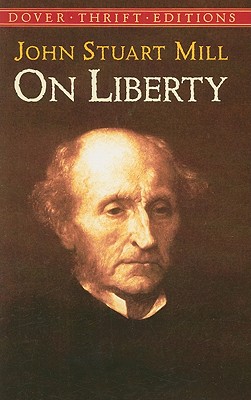 We weaken Medicare by refusing to debate it. When’s the last time you saw opposite opinions on healthcare presented fairly, without bias? Silencing contrarians does not protect our system. Suppression of opinion creates thoughtless prejudice.
We weaken Medicare by refusing to debate it. When’s the last time you saw opposite opinions on healthcare presented fairly, without bias? Silencing contrarians does not protect our system. Suppression of opinion creates thoughtless prejudice.
JS Mill gave 3 reasons to stop suppressing debate in, On Liberty, 1859.
1. Suppressed opinion might be true.
“The opinion which it is attempted to suppress by authority may possibly be true.”
“All silencing of discussion is an assumption of infallibility.”
2. Refuting contrary opinion reveals truth.
“Complete liberty of contradicting and disproving our opinion is the very condition which justifies us in assuming its truth for purposes of action…”
“Truth gains more even by the errors of one who, with due study and preparation, thinks for himself than by the true opinions of those who only hold them because they do not suffer themselves to think.”
“The fatal tendency of mankind to leave off thinking about a thing when it is no longer doubtful is the cause of half their errors. A contemporary author has well spoken of ‘the deep slumber of a decided opinion.'”
3. All conflicting opinion holds some truth.
“…Conflicting doctrines, instead of being one true and the other false, share the truth between them, and the conforming opinion is needed to supply the remainder of the truth of which the received doctrine embodies only a part.”
“Truth, in the great practical concerns of life, is so much a question of the reconciling and combining of opposites that very few have minds sufficiently capacious and impartial to make the adjustment with an approach to correctness, and it has to be made by the rough process of a struggle between combatants fighting under hostile banners….”
“Not the violent conflict between parts of the truth, but the quiet suppression of half of it, is the formidable evil; there is always hope when people are forced to listen to both sides; it is when they attend only to one that errors harden into prejudices, and truth itself ceases to have the effect of truth by being exaggerated into falsehood.”
Mill makes a final point: “…truth; unless it is suffered to be, and actually is, vigorously and earnestly contested, it will, by most of those who receive it, be held in the manner of a prejudice, with little comprehension or feeling of its rational grounds.”
Silence
Politicians fear losing votes, providers fear losing their jobs (or promotions), and voters fear losing medical insurance by allowing debate on Medicare. With Medicare using 50% of tax dollars and growing at 6.5% per year, will this change before it’s too late?
(photo credit: images.betterworldbooks.com)


